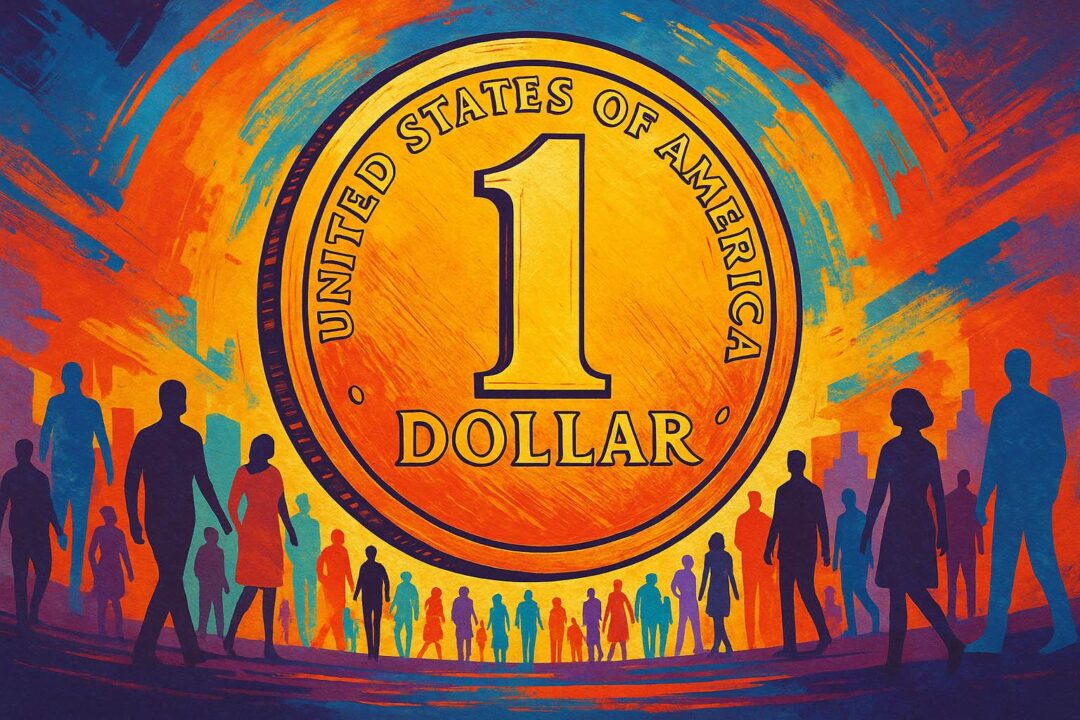What if the world’s most powerful governments no longer believed they could avoid a debt crisis?
What if they’ve looked at the numbers, the inflation, the global borrowing spree—and concluded that the collapse isn’t a risk, it’s a timeline?
Now imagine what happens next: they stop trying to prevent the storm and start trying to outrun it. Not by cutting back—but by spending faster and more aggressively than ever before.
This is the new strategic mindset quietly emerging in capitals from Washington to Beijing:
If the global financial system is heading for a reckoning, the smart move isn’t caution—it’s acceleration.
Spend first. Lock in power. Secure resources. Build weapons. Subsidize critical tech. Invest in hard assets while they still can. Let the debt collapse under its own weight after they’ve taken what they need from it.
Welcome to the new fiscal arms race—where being early isn’t just smart, it might be everything.
From Fiscal Discipline to Strategic Aggression
For decades, the dominant economic rulebook was clear: governments should borrow cautiously, spend wisely, and avoid inflating away the value of their currency. But today, that orthodoxy is rapidly eroding under the weight of reality.
Global debt has passed $300 trillion, with major economies running persistent and growing deficits. Inflation, though off its peak in some countries, remains sticky—and many central banks are running out of options.
So instead of reigning in spending, governments are making a different bet: If a debt collapse is inevitable, the best move is to make sure you’re the one holding the assets when it hits.
The U.S. Dollar: A Special Kind of Armor
This logic plays out differently depending on your status in the global financial hierarchy.
The United States, as issuer of the global reserve currency, has a unique kind of freedom. Because so much of the world’s trade, debt, and savings are denominated in dollars, demand for U.S. Treasuries remains strong—even as deficits explode.
This means the U.S. can:
- Run massive deficits with less immediate currency pressure
- Print and spend without triggering instant hyperinflation
- Export inflation abroad via the dollar system
In short, America can delay the consequences of overspending longer than any other nation. That’s why it’s ramping up:
- Defense spending
- Infrastructure bills
- Industrial policy (e.g., CHIPS Act, IRA)
- Financial aid to allies in contested regions
But for other countries—like the UK, Japan, or emerging markets—the calculus is different.
For Everyone Else: Spend Carefully, but Quickly
Nations that don’t control the global reserve currency have to play a more delicate game. Their currencies are more vulnerable to market sentiment, capital flight, and inflation shocks. But they still see what’s coming—and they know standing still isn’t safe either.
Their approach? Spend strategically, and hedge against fiat risk wherever possible.
- The UK is increasing defense spending while juggling debt sustainability pressures.
- Japan maintains ultra-loose monetary policy while managing inflation expectations.
- Emerging markets are stockpiling dollar reserves—and gold.
They’re also increasingly looking to spend on things with hard, lasting value—physical infrastructure, natural resources, energy resilience, and weapons systems—while their currencies still retain the ability to buy them.
China: The Factory With Leverage
China’s position is unique. It’s not the issuer of the global reserve currency—but it is the backbone of global manufacturing, which gives it leverage that others don’t have.
Here’s how that changes the game for Beijing:
- Control over critical supply chains: China still dominates the production of solar panels, EV batteries, rare earths, and more. In a collapsing financial order, controlling production is as powerful as controlling money.
- Export leverage: As long as the world needs Chinese goods, China can import inflation and export deflation, delaying internal pain.
- State-directed capital: With massive state-owned banks and a command economy, China can deploy spending without Western-style political constraints.
- Strategic diversification: China is stockpiling gold, building non-dollar trade networks, and accelerating Belt and Road projects—all aimed at softening the blow of a U.S.-centric financial unraveling.
But China also knows its window is narrowing. Growth is slowing, demographics are shifting, and private debt is piling up. So it too is spending—hard and fast—while it still can.
Gold: The Comeback Asset of the Monetary Endgame
In a world where fiat credibility is eroding, gold is back in the spotlight.
Central banks—especially in China, Russia, Turkey, and India—are buying gold at record levels. Why?
- It can’t be printed
- It holds value in inflationary spirals
- It provides leverage in trade, resets, and currency defense
For non-reserve currency nations, gold is not just a hedge—it’s a strategic reserve asset. It can back new trade regimes, defend currencies, and build credibility in a world that no longer trusts printed promises.
Even the U.S., despite dollar dominance, holds the world’s largest gold reserves—and has no plans to sell.
What Comes Next?
If this trajectory holds, expect:
- Volatile inflation across both developed and emerging markets
- Accelerating spending on defense, energy, and tech infrastructure
- Greater demand for hard assets like gold, commodities, and strategic land
- Fragmentation of the currency system as trust in fiat wanes
The global economy is being reshaped not by stability, but by anticipation of collapse—and the strategic scramble to front-run it.
Final Thought
When governments stop believing they can stop a debt crisis, they don’t retreat—they go on offense. And the winners won’t be those who saved the most money. They’ll be the ones who spent early, locked in power, secured resources—and left the rest to deal with the fallout.
This isn’t about avoiding the end. It’s about being prepared to come out on top when it arrives.
Welcome to the age of strategic overspending.
Discover more from Brin Wilson...
Subscribe to get the latest posts sent to your email.



